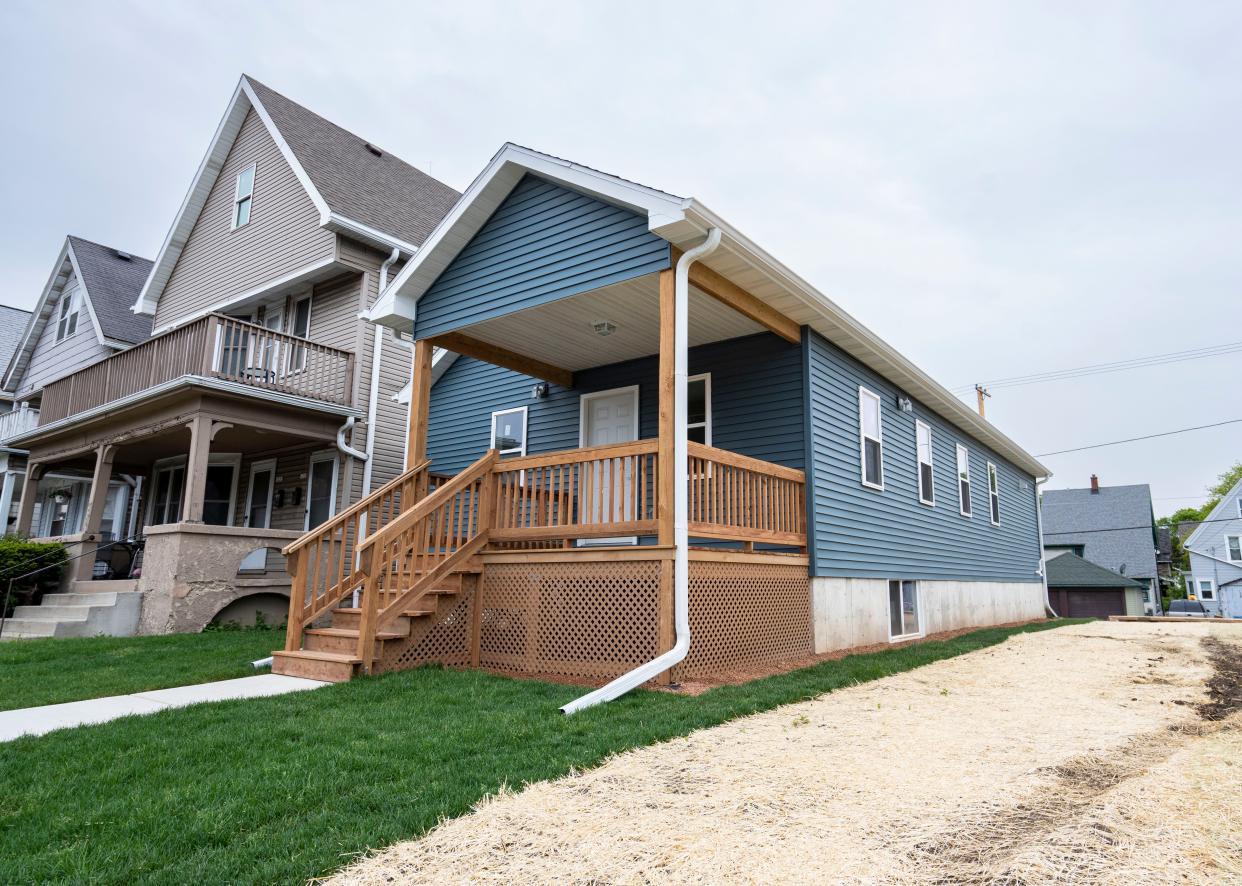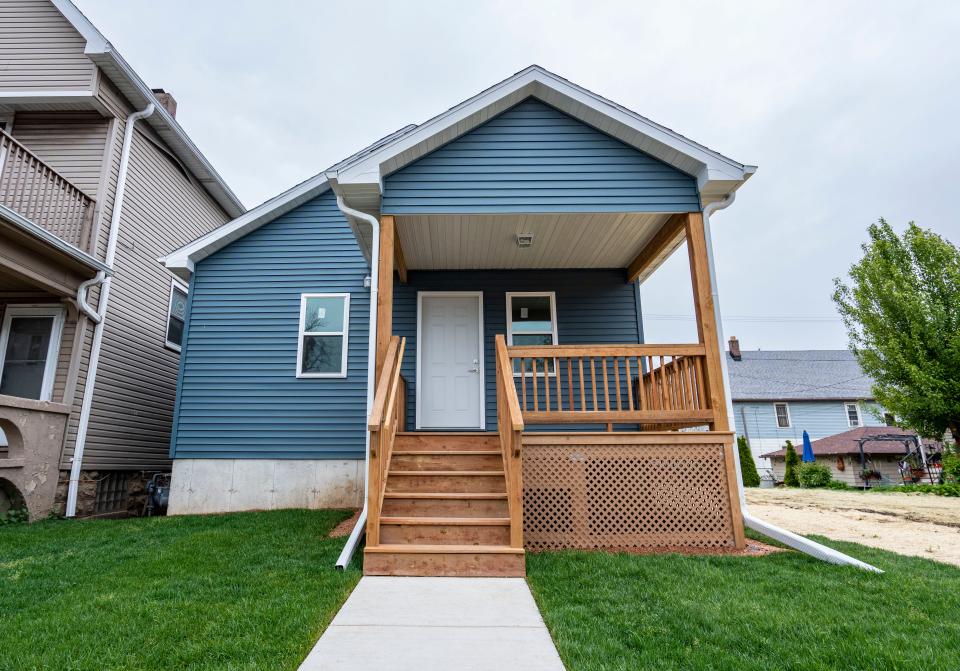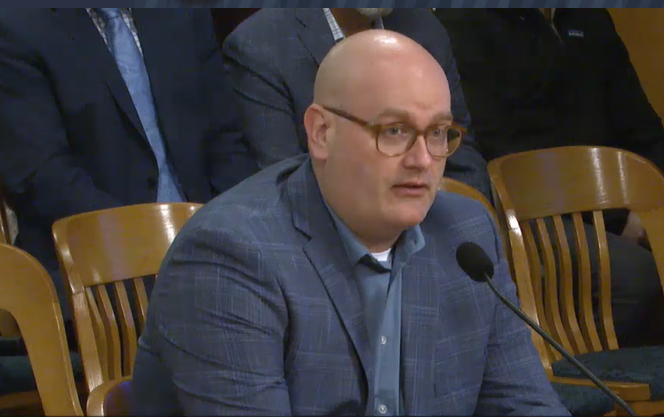Milwaukee is building 42 homes for child care providers. That will help them keep their jobs

A plan to build more than 40 affordable houses for Milwaukee child care workers − helping them stay in that low-paying field while building wealth through home ownership − is taking a big step forward.
A roughly $11 million development, funded mainly through a $4.5 million federal grant along with $4.2 million from low-income home buyers, will finance houses built near five early childhood education centers: COA Goldin Youth & Family Center, 2320 W. Burleigh St.; Malaika Early Learning Center, 125 W. Auer Ave.; Next Door, 2545 N. 29th St.; Growing Tree Children’s Center, 3940 W. Lisbon Ave., and United Community Center Ricardo Diaz Early Learning Academy, 2130 W. Becher St.
It's part of Milwaukee’s Collective Affordable Housing Plan, a project led by the nonprofit Community Development Alliance. The plan aims to promote racial equity through creating affordable housing.
The three-bedroom houses will be sold for around $100,000 each − well below their $250,000 average construction cost − to early childhood educators.
Construction is to begin this summer on vacant lots being purchased from the city. The Common Council's Zoning, Neighborhoods and Development Committee on Tuesday approved selling 46 lots for $1 each, with the full council to vote on the proposal on May 21. Funds have so far been raised to build 42 houses.

That affordable price aims to retain early childhood educators during an industry-wide staffing shortage, said Teig Whaley-Smith, alliance chief executive.
It also creates the opportunity to own homes, instead of renting − which can help bridge Milwaukee's racial wealth gap, he said.
"Homeownership is the American dream and provides a family and employees with stability," said Laura Gutierrez, United Community Center chief executive officer. "The ECE workforce is key to the functioning of our society with their vital role in caring for and educating our youngest learners, but it is still a lower-paid profession.
"This support will provide an immense benefit to these workers who qualify, while also allowing them to live near their place of employment."
A new way to address child care staffing crisis
Low compensation fuels the field's staffing shortage. That can reduce the number of children centers can serve, or even force a center to close.
The median hourly wage for a Wisconsin child care provider was $13.78 as of May 2023, according to U.S. Bureau of Labor statistics. Yet, the living wage in Milwaukee County for an adult without children is $19.15 per hour, according to MIT’s calculations.
Raising wages to better recruit and retain teachers is difficult, said Tamara Johnson, executive director of Malaika Early Learning Center. Increasing wages often means increasing fees at a time when the majority of Wisconsinites struggle to pay for child care.
Child care advocates are fighting for statewide investment they say could make higher wages a sustainable reality. But, Johnson said, there's no telling when, or if, that will happen.
More: Wisconsin Democrats talk a lot about Child Care Counts. But what is it?
Related: Wisconsin's legislative session is wrapping up. What have lawmakers done on child care?
In the meantime, Johnson and other Milwaukee child care center operators are focusing their efforts on the new housing initiative.
“Being able to offer them at least affordable housing would hopefully help stabilize not just people’s living arrangements, but also stabilize the ECE workforce,” Johnson said.
Milwaukee grapples with affordable housing shortage
In order for housing to be affordable, it must cost no more than 30% of a household’s monthly income. In Milwaukee, the majority of families face housing costs that surpass this threshold, according to Census Bureau data.
During the pandemic, Malaika Early Learning Center and other Milwaukee child care centers surveyed their workforce.
Next to lack of adequate compensation, the largest struggle teachers reported facing was lack of affordable housing, Johnson said.
While the rate of homeownership among white child care providers nationwide is nearly 80%, that of Black providers is less than 50%, and that of Latinx providers is 57%, according to research from the Stanford Center on Early Childhood.
The majority of Milwaukee’s child care teaching workforce are either African American or Hispanic, a 2015 study of Wisconsin’s child care workforce shows.
Advancing racial equity for generations
Breaking down racial inequities in homeownership will benefit future generations, Johnson said.
Research from the Joint Center for Housing Studies of Harvard University shows children whose families own their homes have better cognitive test scores and fewer behavior problems.
“Once you own a home, it opens the door to other education about wealth in general,” Johnson said. “You own a home, you build some equity, you add on – it really just makes a world of difference.”
Also, several studies show a child facing poverty who receives a high-quality early education is more likely to see positive outcomes later in life.
One such benefit: they are more likely to own their home.
In a way, it comes full circle.
If this homeownership opportunity keeps child care teachers in the field, then less classrooms would be closed due to staffing shortages. Then, these centers could serve more children, providing high-quality early childhood education and the lifelong benefits that come with it, Johnson said.

Milwaukee homes to be built through early 2026
The Milwaukee project is being financed with a $4.5 million state grant provided through federal American Rescue Plan Act money; a $1 million Northwestern Mutual Foundation grant; a $900,000 city grant provided through federal money; a $300,000 grant from the Zilber Family Foundation, and other foundation grants.
The Community Development Alliance, working with the Local Initiatives Support Corp.-Milwaukee, raised funds to provide a subsidy of around $150,000 for each house − allowing 42 houses to be sold for around $100,000 apiece, said Whaley-Smith. The subsidies total around $7 million, he said, with $4.2 million to come from the home buyers.
That subsidy, while costly, has an impact beyond just the first family that buys it, Whaley-Smith told zoning committee members.
Deed restrictions prevent flipping the homes for a quick sale profit, he said.
So, the subsidy's effects will pass on to the next family which buys the house − helping build intergenerational wealth, Whaley-Smith said.
One model home has been completed, with construction on other houses to begin this summer − pending the May 21 vote by the Common Council to approve selling the vacant lots.
Construction will be completed in phases through early 2026, according to the Department of City Development.
"We are hoping this is a great beginning to more housing," Whaley-Smith said.
Tom Daykin can be emailed at tdaykin@jrn.com and followed on Instagram, X and Facebook.
Madison Lammert covers child care and early education across Wisconsin as a Report for America corps member based at The Appleton Post-Crescent. To contact her, email mlammert@gannett.com or call 920-993-7108. Please consider supporting journalism that informs our democracy with a tax-deductible gift to Report for America by visiting postcrescent.com/RFA
Subscribe to get the BusinessWatch email newsletter.
This article originally appeared on Appleton Post-Crescent: Milwaukee to build homes for child care providers in unusual project


